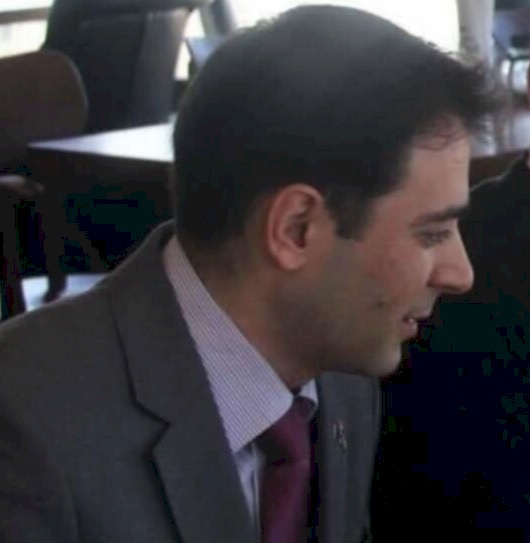
Habermas and His Reversal on Enlightenment Philosophy
The war on the Gaza Strip has posed a real challenge to the Western colonial system, as evidenced by the political stances that have supported the Palestinian cause. However, those following the views of the German philosopher Jürgen Habermas can observe a clear duality in standards. Despite the fact that his romantic thought is based on cherishing freedom, human rights, rational dialogue, public space, and consensus-building, among other significant ideas, his political positions have aligned with Zionist propaganda that justifies Israeli aggression on the Gaza Strip, denying the occurrence of genocide, and accusing supporters of the Palestinian narrative and the popular protests in Germany of anti-Semitism.
Habermas, who denied the existence of genocide in Gaza and expressed sympathy towards the Zionist entity, signed a statement called for by a group of thinkers and influencers over a year ago, arguing that what is happening in Gaza does not constitute genocide. Despite his profound intellectual and philosophical propositions which establish him as a major theorist of modern Germany, and although some see his history as consistent with Zionist thought, his communication philosophy has enabled him to call for freedom and the liberation of humanity from oppression. Additionally, his theorizing on the necessity of protecting the public space has created a type of confusion and ambiguity among contemporary philosophers and thinkers when dealing with his politically contradictory ideas.
This presents a real dilemma, especially since he rejected prestigious cultural awards from countries that sought to honor him for his valuable and significant intellectual legacy, expressing that when power contradicts reason, power is the one that temporarily triumphs. He indicated his belief in the eventual victory of the enlightening power of critical discourse in the long run, clearly rejecting thoughts of control and totalitarianism. As he is considered one of the theorists of the Frankfurt School of Critical Theory, it is necessary to understand the course of modernity today and the need to comprehend the current reality, which requires localizing cognitive and conceptual tools that necessitate returning to this school to benefit from its tools for engaging with its thinkers and creating a profound philosophical dialogue to bridge the gap between claim and practice, which leads to a lack of credibility and decreasing reliability not only in politics but extending to encompass thought and philosophy.
The necessity of returning to the thought and practices of the school and creating profound dialogic channels with cognitive dimensions is not an end in itself, nor is it a glorification of the school, but rather it serves to take advantage of its tools by engaging with and understanding the reality and seeking solutions regarding Habermas's positions concerning the war on the Gaza Strip. The tools provided by the school and employed to understand the current situation, especially in Gaza, have produced a philosophical analysis—alongside political and social analysis—to comprehend reality and discuss its problems and solutions, which should be practiced, especially concerning the idea of control, and emphasizing the necessity of human liberation thought and liberation from the claws of occupation.
The idea of control is the antithesis of the public space; this control discussed by the school’s philosophers is currently being enacted in all its manifestations, reflections, and repercussions in the Gaza Strip by the Zionist entity, a creation of colonial states, which has come to "objectify" people. It kills children and women as if they are not human beings but rather objects from its replacement perspective to justify all forms of repressive practices to avoid feelings of guilt and sin. For sin is greater and deeper than mere mistakes; mistakes are actions performed without prior knowledge, while sin occurs when one commits an act that one is fully aware is contrary to reality and truth and does so with insistence and intent, without feeling guilt.
In reality, Habermas contradicted himself and turned against his philosophy, justifying his intervention in the public sphere through the practice of the culture of specialists to rationalize his ideological stance, dismissing the motivations of German citizens—who he complains about lacking motivation—who protest against the Zionist entity and demand an end to the genocide, suggesting that their activities distort or deviate from the goal, thereby causing a crisis threatening the social and cultural integration within German society.
This leads to the hybridization of the rationality of the political system, meaning the state’s ability to reconcile the conflicting interests of the citizens it governs; hence, it loses its legitimacy, causing a crisis that threatens social and cultural integration and systemic coherence, leading to an economic crisis that undermines the system's integrity in an "economic system" manner, which intensifies the conflict between labor and capital—potentially resulting in either the collapse of the state or its transition into a failed state. Ultimately, he concludes that the sympathetic behavior towards the Palestinian people is an uncivil behavior that negatively affects the German motivation, which he perceives is moving in the opposite direction of the flow of history.
In reality, German foreign policy has preceded Habermas's thought and philosophy, taking historic political positions that represented its structure in recognizing the State of Palestine amidst significant public pressure in Germany and supportive practices for the rights of the Palestinian people and their right to realize their state, already existing on the ground but currently under occupation, has shaken the foundations of Western enlightenment thought and fundamentally undermined the idea that Israel is the enlightened model in a regressive, intellectually, scientifically, and culturally stagnant milieu.

Between "Here is Jerusalem" and "Here is Gaza" ... The Voice of a Nation and the Steadfast...

While some count the boos, Palestinians count their martyrs.. Paradoxes of the internation...

When the Palestinian Issue is Reduced to Gaza Management

Legally Licensed Occupation

The Absence of the Palestinian Representation and the Bet on Time

Palestine: When the Criminal is Declared a 'Peace Maker'

Don't Blame the Palestinian People for the Failures of Your Regimes and Ideologies

